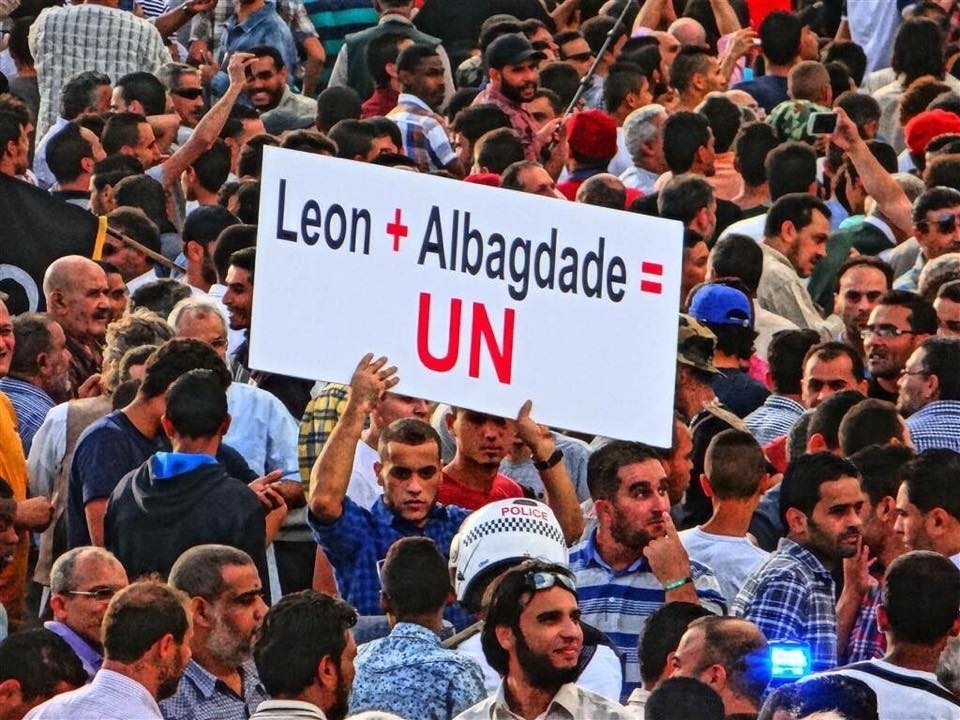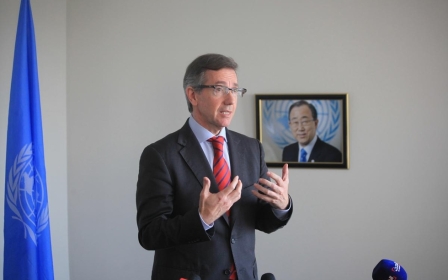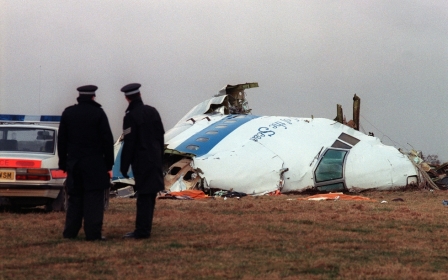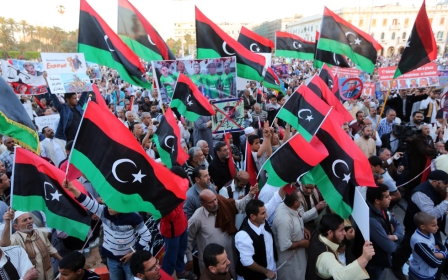Benghazi survivors tell of missiles, chaos at protest against UN plan

TRIPOLI and BENGHAZI - Six people were killed and nine seriously injured in Benghazi on Friday evening when missiles were fired into thousands of peaceful protestors.
More than 2,000 Benghazi residents, including women and children, were staging a protest against the UN’s proposed Unity Government, and showing support for the Libyan Army led by General Khalifa Haftar and loyal to the eastern-based parliament in Tobruk.
The city’s Al-Keesh Square was packed when the first missile was fired into the crowd just before 6pm (17:00 GMT).
“One of the shells fell just metres away from me, throwing me to the ground with the force,” said 29-year-old Mohamed. “A young man was hit and his blood was everywhere. It was terrible.”
He described how a second missile landed in the crowd within seconds.
“People were screaming and running, soldiers and ambulance drivers rushed towards the smoke from where the shells landed, while other people tried to find somewhere to hide. It was completely crazy.”
Mohamed said he saw four missiles hit the square and heard a further five fall after he took shelter behind a building.
Benghazi’s Al-Jalaa hospital confirmed that it received six dead and dozens who were wounded.
Local people claim the attack was carried out by an alliance of opposition forces, made up of revolutionary brigades and members of the Islamist group Ansar Al-Sharia, which has been in conflict for over a year with the Libyan Army. Fighting has left widespread destruction in parts of the city.
Two missiles were fired at a similar protest held the previous Friday, and social media websites affiliated to Benghazi opposition forces had warned that anyone daring to protest again would be targeted.
Demonstrators braved the threats to carry banners bearing slogans against the UN’s proposed Unity Government, which has so far been rejected by the two opposing bodies claiming to be the government of Libya, and claiming that it included names of people who supported terrorism in Libya.
One of the protesters, 32-year-old architect Salwa, said: “We went out today to tell [head of the UN Support Mission in Libya, Bernadino] Leon that he does not have the right to propose that terrorists and leaders of militias should be part of a government for Libya, and we protested even though we knew there was a threat from ISIS [Islamic State], who claim that they are revolutionaries.
“But I did not expect their brutality to reach this level,” she said. “They bombed areas where there were innocent people - women and children - who just wanted to try and have a say in the fate of their homeland.”
Even as ambulances carried the dead and injured from the scene, some protesters remained in Al-Keesh square in defiance against the attack. Singing traditional Libyan songs and still holding placards praising the Libyan Army for its stance against terrorism, they said they were prepared to die to make their message heard.
“People carried only flags, banners or pictures of their relatives martyred in Benghazi. It was a peaceful and unarmed protest but still we were targeted,” said 45-year-old blogger and activist Halima. “Today, the whole world saw the real nature of those we are fighting against."
The conflict in Benghazi has proved to be an impediment to UN-led peace talks aimed at brokering a ceasefire and agreeing on a unity government.
While the Libyan Army of the internationally recognised government based in Tobruk claims to be fighting terrorists in Benghazi, the rival government in Tripoli describes opposition forces as “revolutionaries” fighting against Tobruk’s General Haftar, whom it views as a power-hungry murderer and former US agent now backed by Egypt, the UAE and loyalists from the Gaddafi regime.
A Tripoli government official claimed on Saturday that the attack on the Benghazi protest had been planned and carried out by Haftar loyalists.
The UN were quick to condemn the “terrorist attack” in Benghazi and urged Libyans to reject violence as a means of settling political differences.
But protesters insisted that dialogue was not an option. “These people are extremists who don’t believe in democracy or civil society,” said Mohamed. “We can talk with the Tripoli government, but we can’t talk to these people who want to raise the black flag of al-Qaeda and ISIS here in Benghazi.”
After the protest had dispersed, Libyan Army spokesman Mohamed Hijazi appeared on local television to announce that Haftar had ordered a renewed offensive against rebel-held areas. All units operating under the Libyan Army had been instructed to launch heavy attacks on any Benghazi district occupied by “terrorist groups” he said.
A Benghazi resident, 24-year-old Fatima, said heavy clashes could be heard in parts of the city on Friday night.
New MEE newsletter: Jerusalem Dispatch
Sign up to get the latest insights and analysis on Israel-Palestine, alongside Turkey Unpacked and other MEE newsletters
Middle East Eye delivers independent and unrivalled coverage and analysis of the Middle East, North Africa and beyond. To learn more about republishing this content and the associated fees, please fill out this form. More about MEE can be found here.




